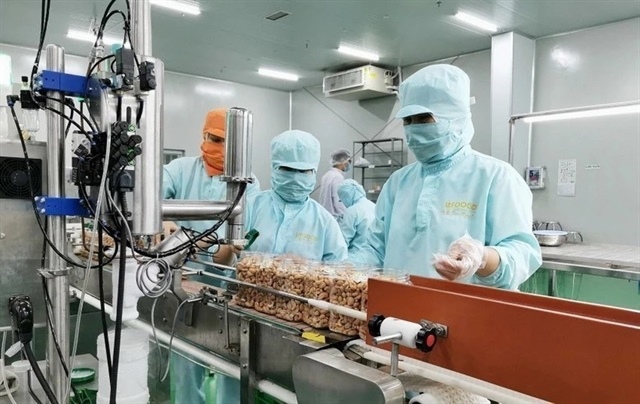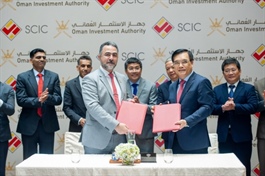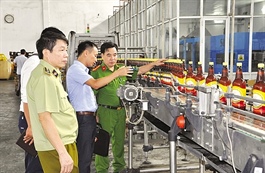Legal breakthroughs needed to unlock potential for State-owned enterprises
Legal breakthroughs needed to unlock potential for State-owned enterprises
They insisted that the role of SOEs has become increasingly important in maintaining macroeconomic stability, guiding the market, and delivering on national strategic objectives.

Cashew packaging at LAFOOCO, the first State-owned enterprises in Việt Nam's cashew industry to go private. — VNA/VNS Photo Minh Hưng |
Economists stressed the importance of a shift from administrative control to supporting and granting greater investment autonomy to State-owned enterprises (SOEs).
They insisted that the role of SOEs has become increasingly important in maintaining macro-economic stability, guiding the market and delivering on national strategic objectives, an urgency that the amended Law on the Management and Use of State Capital in Production and Business Activities at Enterprises should address.
SOEs have been said to have faced numerous challenges in implementing investment projects due to complex and outdated legal provisions, particularly those concerning investment scope, decision-making authority and approval procedures under existing laws. Economists and enterprise representatives said that current procedures significantly limit SOEs’ flexibility.
Even when using their accumulated capital, these enterprises must seek approvals that can take months, causing them to miss timely investment opportunities, especially in strategic and high-tech industries.
In contrast, foreign direct investment (FDI) enterprises are not subject to such procedural hurdles. As long as they comply with Vietnamese law, they could make investment decisions quickly. This has placed SOEs at a disadvantage in their domestic market, hindering efforts to position them as a core pillar of the national economy.
Recognising these challenges, the draft law currently under review by the National Assembly has introduced revisions to remove some of these obstacles.
The drafting committee has underscored the importance of clearly delineating the roles of State management and State ownership representation, avoiding administrative interference in business operations. Stronger decentralisation and accountability of ownership representatives and enterprise leaders are vital for improving SOE governance and enabling economic growth.
Notably, the revised draft incorporates feedback from National Assembly deputies regarding State capital investment using the State budget. For projects with budgets equivalent to those categorised as national key projects under public investment laws, investment guidelines are decided by the National Assembly.
In line with this, the National Assembly has proposed further refining Article 11 of the draft law to uphold the principle of 'State capital, once invested in an enterprise, is treated as the enterprise’s legal assets and capital'.
Industry experts said a top priority of the revised law should be to unlock resources, enhance SOEs' autonomy, and improve accountability, rather than perpetuate rigid administrative control.
Lawyer Nguyễn Tiến Lập, a member of NHQuang & Associates and an arbitrator at the Vietnam International Arbitration Centre (VIAC), argued that the State can explore special governance models for SOEs. Successful examples include Temasek Holdings in Singapore and the Public Investment Fund in Saudi Arabia.
“These SOEs became powerful and globally competitive because the State acts solely as an investor, without exercising direct administrative management," Lập said.
"As investors, governments only need to focus on returns, while State management should apply equally to all economic actors, whether public or private.”
He proposed that the new law should consider removing the concept of State management over SOEs.
“This concept is often ambiguous and complex, leading to potential abuse and hindering the natural autonomy of enterprises,” he added.
- 08:50 05/06/2025



























